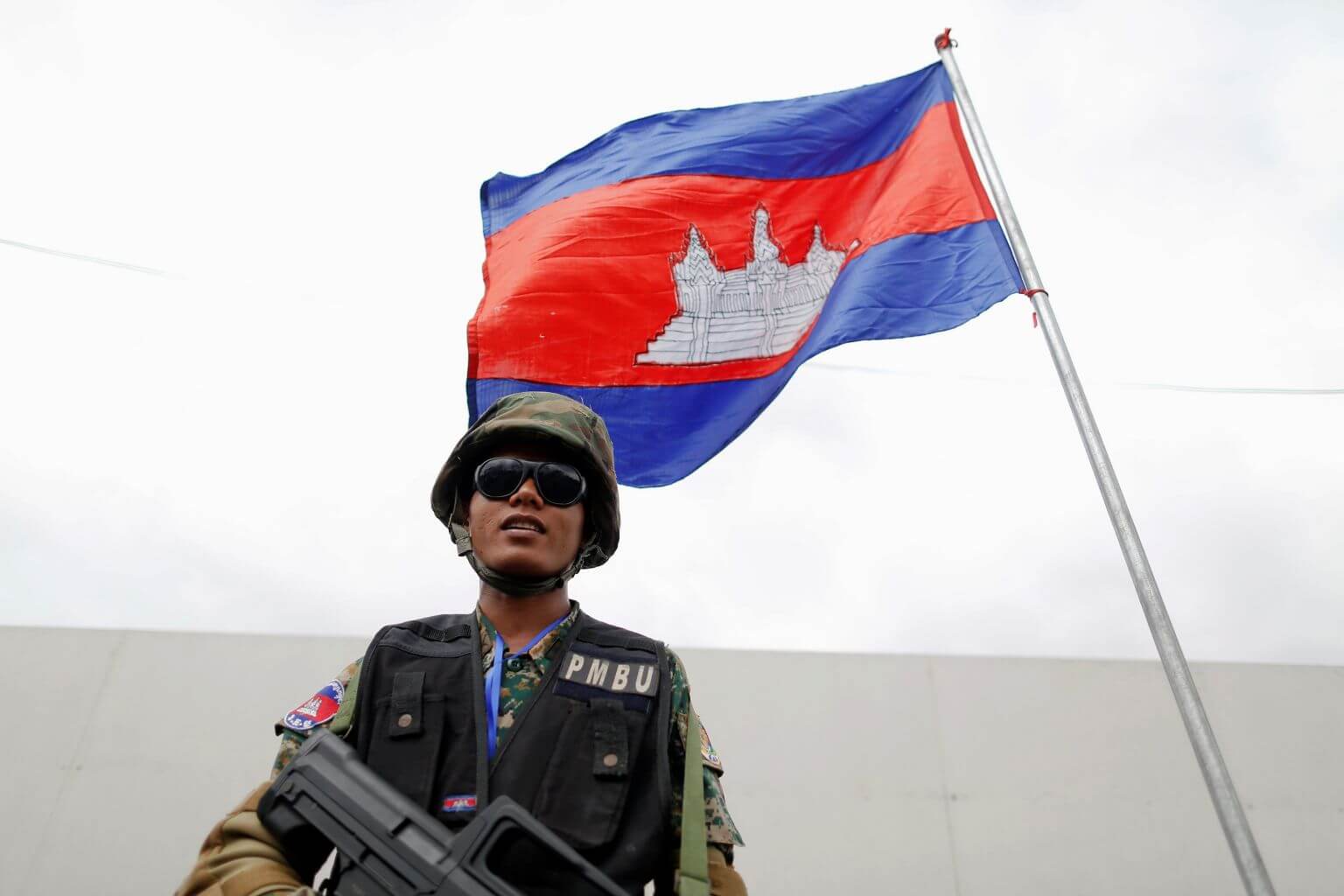On Wednesday, the United States (US) imposed an arms embargo and export restrictions on Cambodia, citing human rights abuses, corruption, and the growing influence of the Chinese military in the country.
According to a filing with the Federal Register, the State Department has banned all arms exports to Cambodia. The filing said: “Cambodia continues to allow the PRC [People’s Republic of China] to expand its military presence and construct exclusive-use facilities on the Gulf of Thailand despite the appeals of US officials.”
Additionally, the Commerce Department imposed new export restrictions on military and civilian use items. The limitations have also been imposed on less-sensitive military items and defence articles and services. Commerce Secretary Gina Raimondo said, “We urge the Cambodian government to make meaningful progress in addressing corruption and human rights abuses, and to work to reduce the influence of the PRC military in Cambodia, which threatens regional and global security.” “The United States remains fully committed to Cambodia’s independence and the sovereignty of its people,” Raimondo added.
The latest action comes ahead of the State Department counsellor Derek Chollet’s visit to Cambodia this week. It also reflects the US’ broader strategy to counter China’s growing influence in Southeast Asia, with Cambodia becoming one of the East Asian giant’s most important allies in the region.
Looking forward to traveling to Cambodia and Indonesia this week, where I will discuss Cambodia’s upcoming chairmanship of @ASEAN, reinforce ASEAN’s role in regional stability, and address the ongoing crisis in Burma. https://t.co/srybluHzAt
— Derek Chollet (@CounselorDOS) December 8, 2021
The impact of the latest sanctions remains unclear because, according to the Stockholm International Peace Research Institute, the US does not supply arms to Cambodia.
Last month, Washington sanctioned two Cambodian officials affiliated with the Ream Naval Base, citing corruption and scheming to profit from construction work at the naval base. In addition, the US State, Treasury, and Commerce Department also issued an advisory to US businesses operating in Cambodia, urging the firms to be cautious of entities engaged in corrupt business practices, criminal activities, and human rights abuses.
In October, the US accused Cambodia of lacking transparency regarding China’s construction activities at its biggest naval base and urged the country to reveal Chinese military activities and involvement to the public. In response, Cambodian government spokesperson Phay Siphan said, “If there are other friends who want to help constructing, we allow, and when the construction is finished, we welcome all countries to use it.”
To reiterate 🇰🇭’s stand to avoid repetition of suspicion regarding the military base in #Ream. 🇰🇭 doesn’t align itself with one against the other; or allow a foreign military presence in its territory; & doesn’t station its military in foreign soils, unless under @UN’s flag
— Office of Cambodian PM 🇰🇭 (@PeacePalaceKH) June 2, 2020
Ties between the US and Cambodia deteriorated following the 2019 report that revealed Beijing’s secret agreement with Cambodia to allow Chinese armed forces exclusive access to some parts of the country’s Ream Naval Base along the Gulf of Thailand. However, the Chinese military denied these reports.
The US has also expressed concern about human rights abuses under Cambodian President Hun Sen, who has been in power since 1985, as well as democratic backsliding. Critics have accused Hun Sen of scaling back democratic freedoms and misusing courts to suppress opposition and activists. As evidence of the autocratic regime’s oppression, Cambodian authorities have been known to arrest dozens of former opposition members and rights campaigners in recent years. Moreover, in the last election, which was held in 2018, Hun Sen’s party won every seat in Parliament after the Supreme Court dissolved his party’s main opposition, the Cambodia National Rescue Party, one year earlier.

